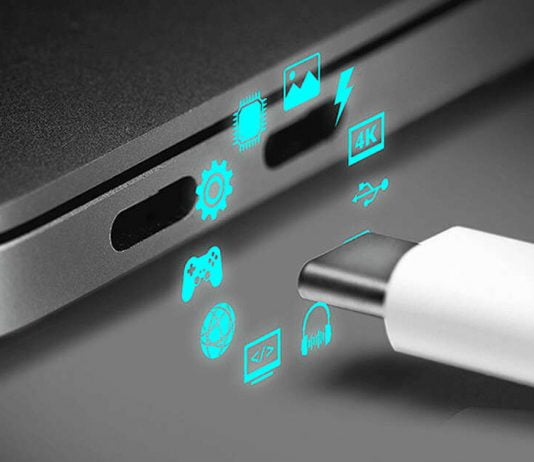The USB Implementers Forum (USB-IF), which formulates the USB standard, has released the specifications of USB4 Version 2.0, which updated USB4.
With the new version of USB4, its speed reaches 80Gbps, and can optionally handle transmission and reception of up to 120Gbps.
The USB-IF said in September that USB4 Version 2.0 would feature a new PHY chip that employs PAM-3 encoding technology, supporting up to 80Gbps bi-directional communication (40Gbps x 4 lanes).
120 Gbps is provided as an optional specification and is achieved by setting 40 Gbps x 3 lanes on the transmitting side and one lane on the receiving side. This is intended for certain applications, such as high-resolution, high-refresh-rate USB4-based displays.
Specifically, this 120Gbps option is likely to be used, especially for gaming monitors and creative applications that use multiple high-resolution displays with HDR colour. In addition, external storage and GPU are compatible with USB4 Version 2.0.
The USB4 Version 2.0 specification supports USB 3.2 tunnelling at 10 to 20 Gbps.
At this point, it seems that a single USB-C cable, including the Thunderbolt standard, can be used to connect all kinds of peripheral devices. However, it is likely to be confusing with too many types of communication standards supported.
However, according to the USB-IF, gadgets that support USB4 Version 2.0 will not be available quickly. It will take another year or a year and a half.
In addition, the USB-IF wants to organize confusing names such as USB4, USB 3.1, SuperSpeed USB, etc., regarding the USB standard’s branding. In the future, describe the supported communication speed after USB.
For example, notations such as USB 3.0, USB 3.1, and USB 3.2 are all unified at USB 5Gbps, and similarly, USB 3.2 Gen 2 and USB 3.2 Gen 2 are written as USB 20Gbps.
According to this rule, products that support USB4 Version 2.0 should be marked as USB 80Gbps on the package, which will help avoid confusion by including USB4 Version 2.0 on the package.
The USB-IF has also updated the USB Type-C cable and Power Delivery specifications to support USB4 Version 2.0 communication.


